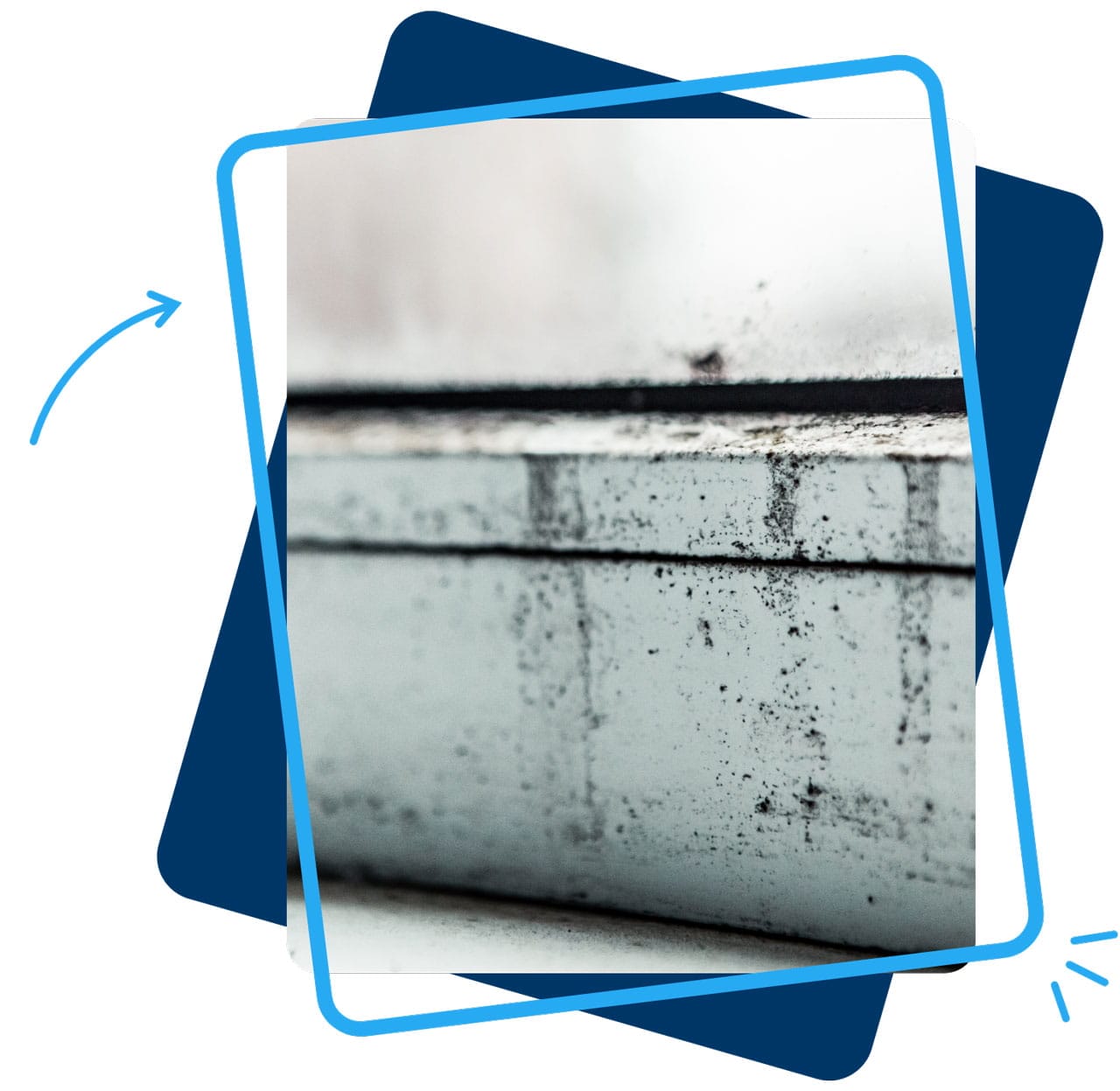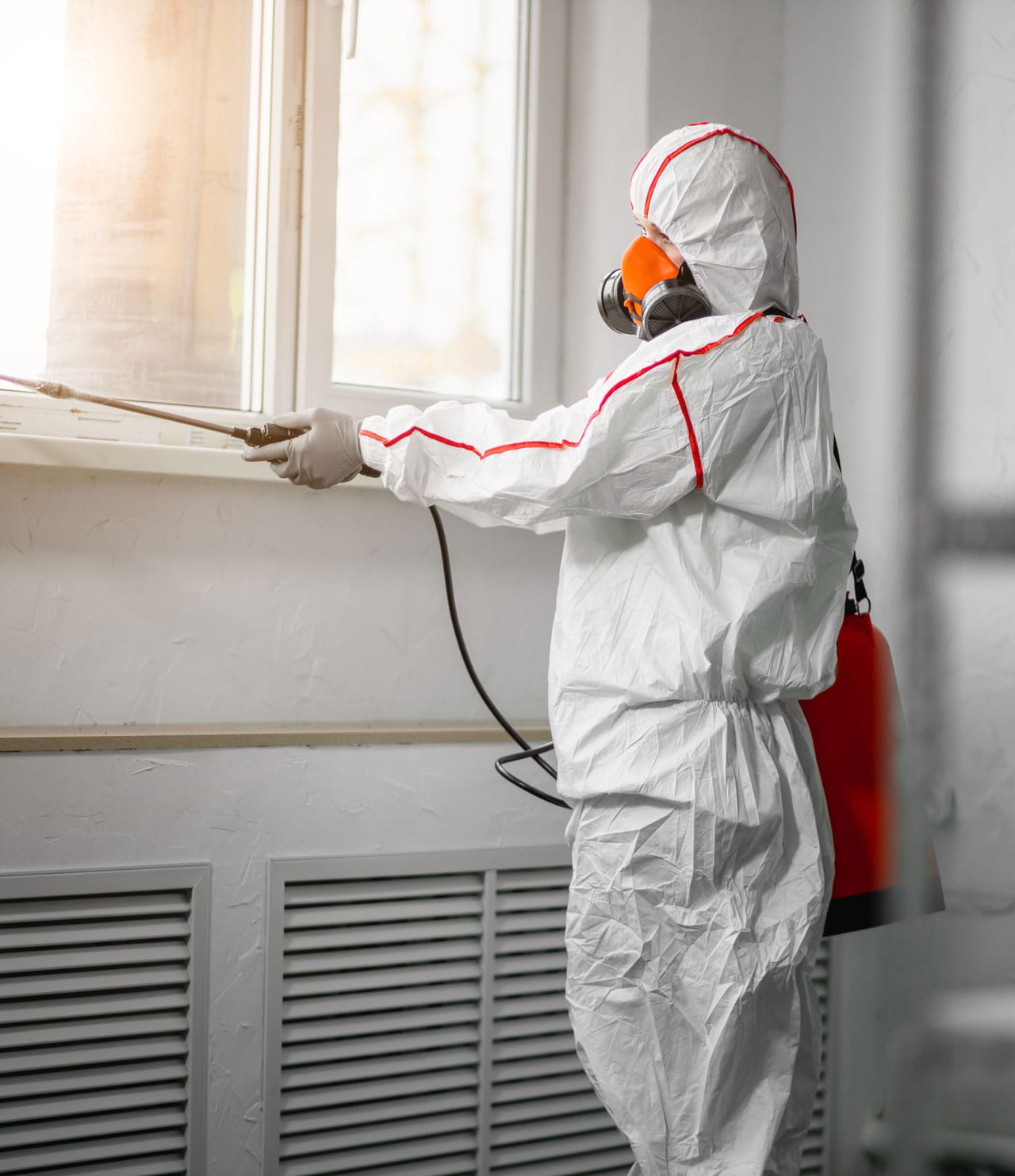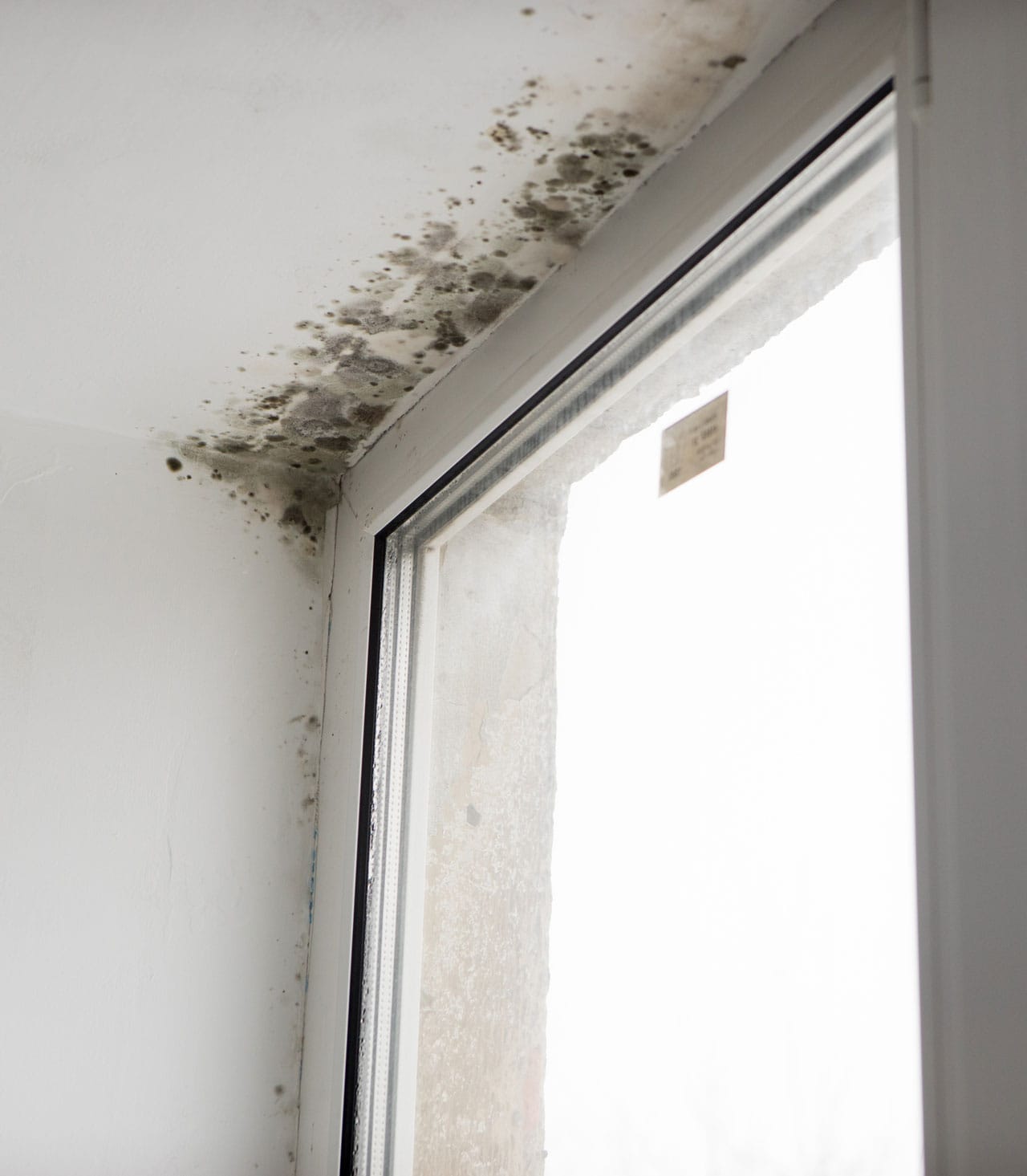Mold Removal
Mold Removal & Lead Removal for Businesses
Professional Lead & Mold Removal in Ottawa
Mold poses a significant risk to both health and property in Ottawa, making it essential to address any potential issues promptly. Recognizing the importance of a safe environment, 1 Clean Air Mold Remediation is dedicated to providing top-notch mold detection and removal services for commercial spaces. Our commitment is to ensure your space is free of mold, safeguarding the well-being of everyone within.

Mold Removal & Lead Removal
Safeguard your workplace environment and the well-being of your employees by eliminating mold from your commercial properties. Professional mold remediation services ensure a healthier, safer space for both staff and clients.
Understanding Mold and Lead Removal
Commercial Mold Remediation
Secure your commercial property against health hazards by addressing mold and lead issues promptly. Often, the significance of eliminating mold and lead is overlooked by property owners. Yet, tackling these issues is crucial for maintaining a healthy environment.
Opting for professional mold and lead removal services not only ensures the safety and well-being of occupants but also contributes to the overall structural integrity of your property.
Enjoy complimentary, no-commitment inspections, and gain peace of mind with our unparalleled warranty covering all services.

Mold Remediation for Businesses in Ottawa
Complete Mold Remediation Services
Ottawa’s commercial sector is home to a variety of buildings, many of which are time-honored structures that add character to the cityscape. However, the age of these buildings often brings challenges, especially in terms of maintaining a healthy and safe environment for both employees and customers. Mold, a common issue in older buildings, can compromise air quality and structural integrity if not addressed promptly.
At 1 Clean Air Mold Remediation, we understand the unique needs of Ottawa’s commercial architecture. We are more than just service providers; we are partners in ensuring your business’s environment is free from mold and its associated risks. Our team excels in the latest mold remediation techniques, tailored to suit the specific requirements of each commercial property, whether it’s a historic boutique or a modern office building.
Considering a mold assessment for your property? Get in touch with the 1 Clean Air Mold Remediation team for a consultation and discover our comprehensive mold remediation solutions tailored for the commercial spaces of Ottawa.
Why 1 Clean Air Mold Remediation?
Opting for 1 Clean Air Mold Remediation for your mold removal needs means choosing a service experience that not only meets but exceeds your expectations, marked by impeccable remediation with every project.
Expertise
Our team is composed of highly trained professionals who deliver unparalleled mold remediation services, setting industry standards.
Trustworthy
Our team is composed of highly trained professionals who deliver unparalleled mold remediation services, setting industry standards.
Certified
The qualifications of 1 Clean Air Mold Remediation are evident in the superior quality of our results, underlining our commitment to excellence.
Efficient
1 Clean Air Mold Remediation is synonymous with timely and efficient service. We pride ourselves on our accurate scheduling, ensuring that every project is completed with the utmost reliability.
Safeguard Your Ottawa Property with Professional Mold Remediation
Mold Remediation Services in Ottawa
A frequent concern for property owners in Ottawa is the presence of mold, which can cause significant damage to structures and potentially lead to health issues. At 1 Clean Air Mold Remediation, we emphasize the importance of timely and effective mold removal, illustrating the ways in which it can preserve the integrity of your property and improve indoor air quality.

Our Step-By-Step Process
1. Our Detailed Mold Investigation Methodology
At 1 Clean Air Mold Remediation, our mold inspection protocol exemplifies our dedication to safeguarding your health and property. We initiate the process with an in-depth visual survey to pinpoint potential mold and moisture indicators. Our seasoned specialists employ state-of-the-art diagnostic equipment, including infrared thermal imaging and hygrometers, to reveal concealed mold infestations and water intrusion invisible to the unaided eye. This thorough method allows us to trace the origin of mold proliferation accurately and formulate a strategic plan for effective mold eradication.
2. Enjoy Long-Term Mold Remediation Benefits
Choosing professional mold remediation ensures long-lasting protection against mold, vastly outperforming DIY solutions. With solutions designed to last, invest in your property’s health once and enjoy a clean and safe environment for years to come.
3. Cut Down on Health and Repair Costs
Benefit from substantial savings in potential health and repair expenditures with expert mold remediation. Businesses free from mold maintain a healthier living environment, reducing medical bills and costly home repairs due to mold damage. It’s a wise investment that yields dividends in health and financial savings.
4. Improve Your Living Space
Improve the air quality and comfort of your business while safeguarding against mold-related problems with our specialized remediation services. It's not solely about addressing current mold; it's about ensuring a space where the air is cleaner, living conditions are improved, and mold is kept at bay.
OSHA and NFPA Compliant
Certified Installers
We Make It Right
Financing Available
Affordable than traditional methods
Got Questions? We’ve got Answers.
1. What causes mould some Mold Triggers?
The development of mold in commercial spaces can often be attributed to a variety of factors. Understanding these can be key to prevention:
- Humidity: Elevated indoor humidity levels can encourage mold growth, especially when the air retains moisture for prolonged periods.
- Roof and Pipe Leaks: Water intrusion from leaks in the roof or plumbing can create ideal conditions for mold to flourish, often unnoticed until the problem is significant.
- Condensation: Cold surfaces can cause water vapor in the air to condense into liquid water, providing another moisture source for mold.
- Inadequate Ventilation: Poor airflow can lead to stagnant moisture, particularly in areas like bathrooms and kitchens, where water vapor is commonly produced.
- Flooding: Severe, but even minor flooding can saturate building materials, creating an environment conducive to mold growth if not properly dried.
- Damp Areas: Rooms with naturally high moisture levels, such as basements and crawl spaces, can be prone to mold development without proper moisture control.
- Water Accumulation Near the Foundation: Water that pools around a building’s foundation can seep into the structure, creating damp conditions ideal for mold.
2. What is Mold?
Mold is a type of fungus that thrives in moist environments and can spread quickly through the production of spores. Visually, mold can appear as a patchy or fuzzy growth, varying in color from black, green, white, or even red. The scent of mold is distinctly musty, often likened to wet socks or a damp basement, signaling its presence even when it’s not immediately visible.
3. Mold or Mould?
The terms “mold” and “mould” are interchangeable, with the spelling difference primarily being a matter of regional preference. “Mold” is commonly used in the United States, while “mould” is preferred in the United Kingdom and other Commonwealth nations. Regardless of spelling, they refer to the same fungal growth.
4. What does Mold Smells like?
A musty, moldy odor often acts as an early indicator of a hidden mold problem within a space. This distinctive smell is a sign that mold is growing in an area, likely out of view, and should prompt an inspection and remediation effort to identify and eliminate the source.
5. Can I find mold in my Air Conditioners?
Air conditioning units are particularly susceptible to mold growth due to the presence of moisture and the fact that they circulate air throughout a building. If mold establishes itself within an AC unit, it can spread spores through the air, impacting the entire indoor environment and potentially leading to health issues.
6. Mold in Air Vents?
The development of mold in air vents can stem from various hidden problems, such as leaks or condensation within the ductwork. These issues create a prime habitat for mold by providing the moisture it needs to flourish. Mold in air vents requires prompt attention to prevent it from affecting the air quality throughout the building.
7. Does mold grow in office buildings?
Due to shared walls, plumbing, and HVAC systems, office buildings can sometimes have an increased risk of developing mold. Factors like inadequate ventilation, leaks from neighboring units, and high humidity levels can all contribute to mold proliferation in office settings.
8. What are the types of mold?
Covering all possible mold types in exhaustive detail would be quite extensive, as there are over 100,000 species of mold! However, I can provide information on some of the most common types found in indoor environments and their implications. Each type of mold has distinct characteristics and potential effects on health and property.
- Aspergillus
- Characteristics: Commonly found in air and soil, it has various species that appear in different colors.
- Health Effects: Can cause respiratory infections and hypersensitivity pneumonitis in susceptible individuals. Certain species produce aflatoxins, potent carcinogens.
- Cladosporium
- Characteristics: Typically green to black and found on both indoor and outdoor surfaces. It thrives in cool areas.
- Health Effects: Mainly causes allergic reactions such as sneezing, red eyes, and skin rash. Rarely causes more severe infections.
- Penicillium
- Characteristics: Known for its blue or green color and velvet-like texture. Commonly grows on materials damaged by water.
- Health Effects: Can cause allergies and asthma. Some species produce mycotoxins, which can be harmful if ingested.
- Stachybotrys
- Characteristics: Also known as “black mold.” It has a slimy texture and usually grows on water-damaged, cellulose-rich materials.
- Health Effects: Produces mycotoxins that can cause serious health issues, including breathing difficulties and memory loss. However, exposure to toxic molds like Stachybotrys is less common than to other molds.
- Alternaria
- Characteristics: Often found in showers, bathtubs, and under leaky sinks. It is known for its velvety texture with dark green or brown hairs.
- Health Effects: Causes allergic reactions and asthma attacks. It’s one of the most common molds that cause allergies.
- Acremonium
- Characteristics: Can be moist at first and then turn into a fine powdery substance. It comes in various colors.
- Health Effects: Can cause immune system and bone marrow diseases. Some species are toxigenic.
- Chaetomium
- Characteristics: Commonly found in water-damaged buildings and homes. It has a cotton-like texture and changes colors from white to gray to black.
- Health Effects: Known for its musty odor, it can cause skin and nail infections.
- Fusarium
- Characteristics: Often found on plants and food products but can grow in homes with water damage. It can appear pink, white, or reddish.
- Health Effects: Can cause skin infections and other more severe infections in immunocompromised individuals.
Mold can grow in any environment where moisture is present. Identifying and mitigating mold as soon as possible is crucial to prevent its spread and reduce potential health risks. If you suspect a mold problem, it’s often best to consult with professionals who can identify the specific type of mold present and recommend the appropriate remediation steps.